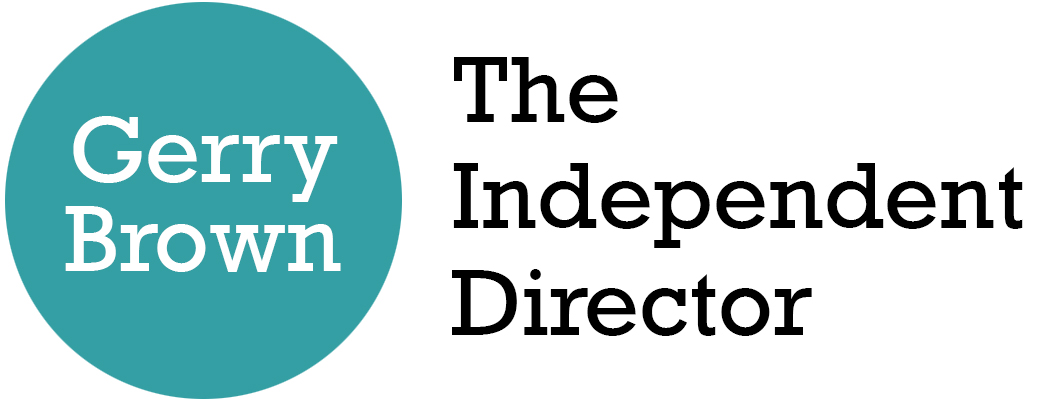
Annual Board Evaluations suggestion
THE statutory powers needed to improve and police audit quality of the Big Four accounting and consultancy firms following the demise of Carillion still remain some distance from the launch pad.
Worse still, though the Financial Reporting Council (FRC) have a draft bill regulatory rocket ready for take-off, its failure to make the cut in the queen’s speeches of 2021 and 2022 (and soon the king’s speech of 2023) leaves the endemic complacency and chronic lack of competition in (Big Four) audit untouched.
What got lost in the noise of the FRC – finally - predictably finding KPMG negligent for not subjecting Carillion to “rigorous, comprehensive and reliable audits” is that better regulation of (Big Four) auditors doesn’t address the board irresponsibility^ and light-touch board evaluations environment that enabled and caused the collapse itself or other scandals and disasters like it.
Though Carillion are identified as enjoying a dysfunctional “bystander board” – also suffering from acute “groupthink” - in one of the case studies in my book (with Randall S Peterson) Disaster in the Boardroom - rather than wait for an audit regulation rescue that may never happen, I think we need an improved cadence of annual external board evaluations for all FTSE-350 companies to reduce the jeopardy the Big Four auditors are so often failing to catch.
My proposal is that UNTIL these new allegedly ‘beefed-up’ FRC audit regulations manage to hit the statue books – if they ever do - then the cadence of the requirement for external board evaluation should occur annually each financial year rather than every third year as is now mandatory in the UK for FTSE-350 companies.
As a matters of urgency and transparency, all FTSE-350 boards need to annually have – ideally randomly assigned - independent external evaluators scrutinise them to ensure their own cultures are fit for purpose rather than just rely on financial transgressions, misrepresentations or half-truths being caught by the auditors afterwards. Such a requirement ensures auditors – Big Four or otherwise - still have a responsibility to refuse not to notice the broken pieces when assessing, validating and smoothing FTSE-350 company financial rough edges. Vital though conscientious auditing is to the integrity of the system, it is hardly a solution for rabid dogs to blame their tails for their poor boardroom behaviours and mis-representations while they wait for legislative change elsewhere in the financial accounting eco-system to cure them.
When FTSE directors effectively continue to mark their own homework – both directly and via third party auditors they themselves choose (albeit from a limited gene pool) - as they do at present, the danger of further disasters caused and compounded by fallacious financial statements is ever present. This isn’t solely an audit issue. Indeed, data from the Harvey Nash international board survey we quote in Disasters in the Boardroom shows that only about a third of companies complete effective outside board evaluations. Another third go through an evaluation exercise, but usually organize it to get the answers they or the Chair want - allowing them to pat themselves on the back^^ rather than undergoing any kind of serious critique – while, the remaining third do no board evaluation at all!
In summary, it is also important that annual board evaluations are facilitated by external consultants. Until audit is subject to greater legislative oversight and penalty, simply leaving FTSE-350 board to conduct their own internal – frequently ‘light touch’ - evaluations every three years is clearly insufficient.^^^
Notes
^ At Carillion, the boardroom groupthink was so strong that even when an internal whistle-blower called out the finance director and insisted the figures were wrong, no one listened. MPs found that KPMG had signed-off on ‘increasingly fantastical figures’, and that Deloitte, as internal auditor, had not identified key risk management and financial control failures – or had ‘too readily ignored them’. In response, KPMG’s chairman defensively denied responsibility for Carillion’s downfall, arguing that ‘while a company might fail following issuance of an unqualified audit opinion, this does not automatically mean the auditor did a bad job.’
^^ Boards need to scrutinise themselves and ensure their own cultures are fit for purpose. This requires honest discussions around the issue, and the chair in particular has a vital role in determining the culture and ensuring it is strong and independent. A robust and independent system of board evaluation also has a strong role to play. When any FTSE-350 board does not question its own culture, it does not realize it is dysfunctional. Indeed, the chair often chooses who does the evaluation and in some cases the chair might pick someone who will tell them what they want to hear rather than what they need to hear, in effect undermining the purpose of the review. This is turn means the board does not develop and grow. This lack of effective board evaluation and development can have severe financial consequences – as it did at, for example, Carillion - for employees, company pensioners, shareholders and the wider community.
^^^ This is not to suggest that all FTSE-350 internal evaluations lack rigour, but that over time there is a danger that the directors will begin to fail to mark their own financial homework with due rigour and accuracy they expect of their auditors.
Photo credit: wikipedia
